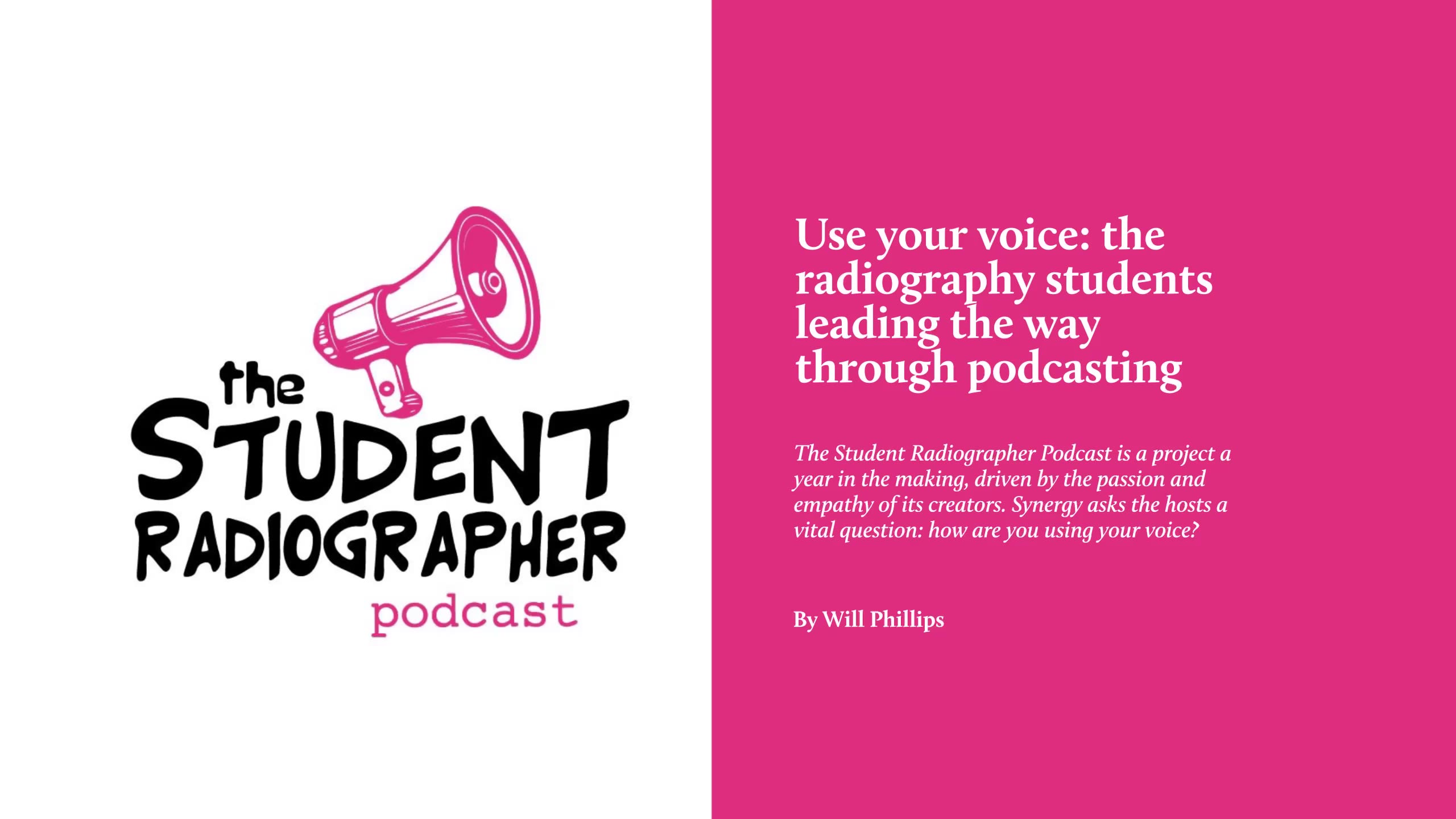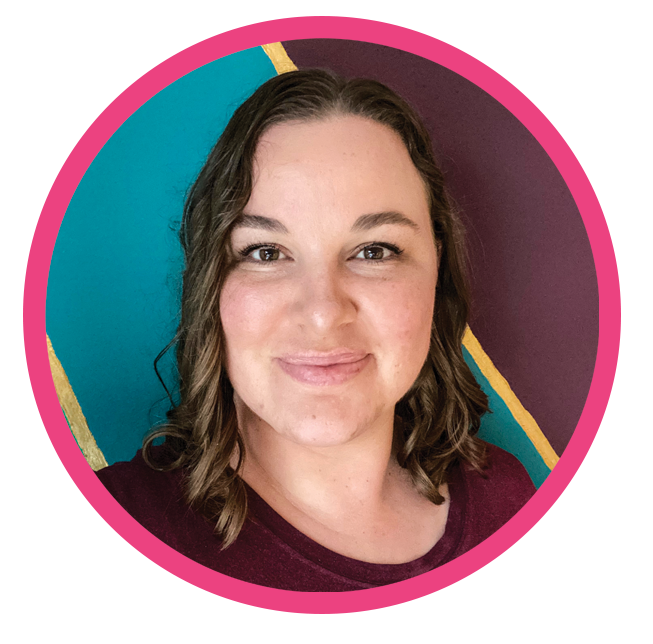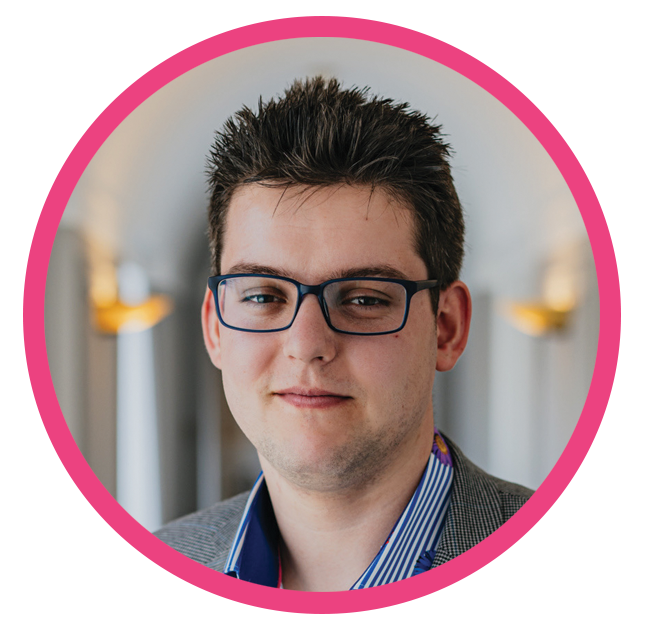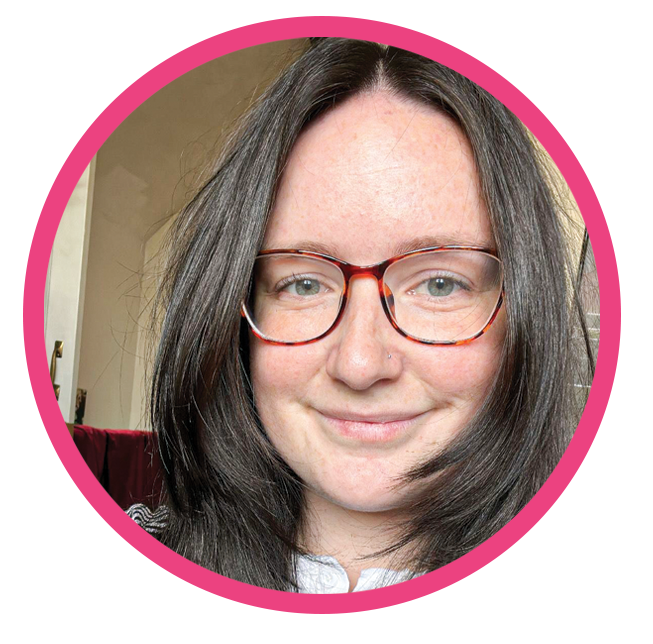
Student radiographers are the future of the profession, but between tests, placements and preparing to join the ranks of their mentors, the topic of wellbeing is all-too easily overlooked. But the newly launched Student Radiographer Podcast, hosted by radiography students Rebekah Vyce, Connor Parish and Alice Denslow, is aiming to put wellbeing right at its heart.
‘To inform, empower, equip, encourage and give voice to student radiographers’ is the strapline of this valuable offering, supported by the SoR Students’ Network – a statement that says it all. Through conversation, community, interviews and information, the podcast is seeking to support the wellbeing of its listeners and provide all the tips and tricks they need to make the journey to the start of their careers.
Whether full-time student, part time, apprentice, Master’s level or “anything in between”, the Student Radiographer Podcast has been set up to give you a voice.
Having launched its first episode last month (23 September), Synergy sat down with hosts Rebekah, Conner and Alice to find out more about what they hope to achieve with their new positions, what they’re excited about and how they got to this point.
Rebekah Vyce
Rebekah Vyce
Rebekah is a third-year diagnostic radiography student at the University of West England, Bristol. Having been a wellbeing officer for the SoR Student Network for the last year, Rebekah has found a passion for supporting her fellow students.
The idea for the podcast emerged, she explains, from this role, and her desire to make wellbeing that much more achievable. “I’m passionate about how we use our voices,” she says.
“It’s a huge tool for wellbeing – and not one that’s often talked about. Making sure you take walks, get a gym membership, those things are valid, but I think sometimes they are unachievable.” Some of these aspects require financial capacity or available time that simply isn’t feasible for everyone, she adds.
“But everyone has a voice, whether they’re confident in using it or not,” she says. “There’s so many different things people can do with their voices, even if it’s just starting with how they talk to themselves.”
What is your internal voice? How are you talking about yourself, both when you’re alone and when you’re around others? Are you celebrating your wins, or acting as your own worst critic? Asking these questions is vital to wellbeing – and Rebekah wants to use her voice to advocate for those around her, for patients, and to help others ask for help when they need it. “Everything we’re doing is to give students a space to talk about how it’s going, what they’re struggling with or something that’s going really well. The aim is to get us all through, together, to create this community where we can support each other through what is quite intense training.”
From academic workload and training to coping with student life and imposter syndrome – student radiographers from across the country and across the spectrum of specialisms are going through similar challenges, Rebekah adds. Sometimes the course can be isolating, especially for those living away from home or who are away from friends on placements. “This is just a place where you can listen to a podcast- where, for a moment, maybe you don’t feel alone in that,” she says.
Rebekah Vyce
Rebekah Vyce
Rebekah is a third-year diagnostic radiography student at the University of the West England, Bristol. Having been a wellbeing officer for the SoR Student Network for the last year, Rebekah has found a passion for supporting her fellow students.
The idea for the podcast emerged, she explains, from this role, and her desire to make wellbeing that much more achievable. “I’m passionate about how we use our voices,” she says.
“It’s a huge tool for wellbeing – and not one that’s often talked about. Making sure you take walks, get a gym membership, those things are valid, but I think sometimes they are unachievable.” Some of these aspects require financial capacity or available time that simply isn’t feasible for everyone, she adds.
“But everyone has a voice, whether they’re confident in using it or not,” she says. “There’s so many different things people can do with their voices, even if it’s just starting with how they talk to themselves.”
What is your internal voice? How are you talking about yourself, both when you’re alone and when you’re around others? Are you celebrating your wins, or acting as your own worst critic? Asking these questions is vital to wellbeing – and Rebekah wants to use her voice to advocate for those around her, for patients, and to help others ask for help when they need it. “Everything we’re doing is to give students a space to talk about how it’s going, what they’re struggling with or something that’s going really well. The aim is to get us all through, together, to create this community where we can support each other through what is quite intense training.”
From academic workload and training to issues of mental health and imposter syndrome – student radiographers from across the country and across the spectrum of specialisms are going through similar challenges, Rebekah adds. Sometimes the course can be isolating, especially for those living away from home or who are away from friends on placements. “This is just a place where you can listen to a podcast where, for a moment, maybe you don’t feel alone in that,” she says.
Connor Parish
Connor Parish
Connor is a third-year therapeutic radiography student at the University of Suffolk. He’s been involved with the SoR Student Network for five years now, since he began at the university. Helping out with the podcast, he says, felt like “the next step”. “Producing something for students that I feel I would have benefited from earlier in my student career, and giving back, is important to me,” he adds.
He really wanted to emphasise the community aspect of the podcast, and the importance of creating a space where students can empower each other to reach out and help. While the support from universities and placements is “great” whenever issues pop up, they tend to focus on the clinical and academic aspects, says Connor. “Sometimes it’s useful to talk to someone who is experiencing the same thing as you. The people you talk to, they haven’t necessarily been a student that recently. As active and current students, we can give that feedback while it’s current,” he explains.
“We [the podcast hosting team] all represent a different year, or a different course – the different avenues you can take into radiography. I want to talk about the stuff we wish we had as students early on in our career that now, as we’re further into our education, can give back to better them, and to better ourselves.”
Alice Denslow
Alice Denslow
Alice is a second-year diagnostic radiography degree apprentice at University of Exeter. She only joined the Student Network recently, but jumped at the opportunity to get involved with running the communication side of the podcast. “I’m super passionate about radiography and making sure learners are getting the experience they can while there in placement or in the workforce,” she says. “I’m really keen on doing extra things that will help better that for people – act as a useful resource. It’s all stemmed from there.”
Much like Rebekah and Connor, Alice wanted to help give students a voice, empower people to be able to do the best they can and enable them to ask for help when they need it. Imposter phenomenon has been a constant struggle for Alice, she explains: “I know I can do it, but my self confidence takes dips from time to time. It’s great having a support network, at my workplace and with other radiographers. But having that peer support resource, like we want the podcast to be, is really important. I hope it can help at least one student, going forward.”
In September last year, the SoR came to Rebekah for a conversation about wellbeing, where she expressed her desire to make students aware of what they can do with their voice. From there, The Student Radiographer Podcast was born.
Once the rest of the team – Connor and Alice – were brought onboard, things began to kick into high gear. With the podcast’s goal seeking to inform, equip, empower and encourage student radiographers, the three of them will interview guests – not just students, but those with relevant expertise – share tips, answer listener-submitted questions and more. “Obviously this is a really grand vision,” Rebekah admits. “We can’t do that in a year. But we want to make sure everything we do is towards that vision. That’s part of what being a student radiographer is all about – preparing to join the profession.”
The project will be passed on to a new student team every year.
Episode one, released on 23 September, focuses on helping listeners get to know the team for the year ahead. Each of the hosts interview each other about their vision for the programme, why they got involved and how each of them hopes to use their voice. Connor, Alice and Rebekah also talk about their own struggles and how they’ve overcome them.
In September last year, the SoR came to Rebekah for a conversation about wellbeing, where she expressed her desire to make students aware of what they can do with their voice. From there, The Student Radiographer Podcast was born.
Once the rest of the team – Connor and Alice – were brought onboard, things began to kick into high gear. With the podcast’s goal seeking to inform, equip, empower and encourage student radiographers, the three of them will interview guests – not just students, but those with relevant expertise – share tips, answer listener-submitted questions and more. “Obviously this is a really grand vision,” Rebekah admits. “We can’t cover everything in a year. But we want to make sure everything we do is towards that vision.”
The project will be passed on to a new student team every year.
Episode one, released on 23 September, focuses on helping listeners get to know the team for the year ahead. Each of the hosts interview each other about their vision for the programme, why they got involved and how each of them hopes to use their voice. Connor, Alice and Rebekah also talk about their own struggles and how they’ve overcome them.
Plans for the year ahead include an interview with Nichola Jamison, the SoR’s student and new professionals officer, who will talk about the benefits of joining the society’s Student Network. Also in the works are episodes on essays, clinical placements, the Annual Delegates Conference (ADC), the transition from student to new professional, the experiences of apprentices and more. “Hopefully there is something that everyone can get out of every episode,” Rebekah says. “It’s a passion project that we’re hoping will help some students and will create a bit more community.”
Connor, who has put forward a motion at ADC previously around advertising the Student Network more, is excited for what’s ahead. Working on The Student Radiographer Podcast, he says, is his first chance to practise what he’s preached. “I’d also quite like to see universities and trusts view this as a format for sending prospective students out to get an understanding of radiography, both diagnostic and therapeutic,” he explains.
The student outlook on common worries is something the team is keen to explore – what needs doing on placement, asking people to sign off on competencies and just speaking to people when you’re having a bad day.
Plans for the year ahead include an interview with Nichola Jamison, the SoR’s student and new professionals officer, who will talk about the benefits of joining the society’s Student Network. Also in the works are episodes on essays, clinical placements, the Annual Delegates Conference (ADC), the transition from student to new professional, the experiences of apprentices and more. “Hopefully there is something that everyone can get out of every episode,” Rebekah says. “It’s a passion project that we’re hoping will help some students and create a bit more community.”
Connor, who has put forward a motion at ADC previously around advertising the Student Network more, is excited for what’s ahead. Working on The Student Radiographer Podcast, he says, is his first chance to practise what he’s preached. “I’d also quite like to see universities and trusts view this as a format for sending prospective students out to get an understanding of radiography, both diagnostic and therapeutic,” he explains.
The student outlook on common worries is something the team is keen to explore – what needs doing on placement, asking people to sign off on competencies and just speaking to people when you’re having a bad day.
The team is also planning to interview Tom Welton, current president of the society, to get to know more about him and his journey.
Hosting a podcast marks a significant milestone for each of the students participating – and while each of them are passionate about radiography, they hope to bring more of themselves and their experiences to it.
Rebekah has been a professional musician for the last 12 years, and she emphasises the crossover between the jobs and the skills she’s been able to bring over: “It’s empathy, it’s people skills, it’s creative problem solving. We box up what creativity looks like, when it can be useful for so much more. Communication is 50 per cent of the job – and I've always been fascinated by human biology.”
Having thought she would be a musician her whole life, Rebekah explains that deciding to transition into a different career had been “a long time coming, subconsciously”. “Saying out loud and giving myself permission, for the first time, to say: ‘Oh, maybe I don’t have to do music for work’ was a relief,” she says. “The journey from that to finding radiography was less than 24 hours. I was done with self employment; I hated fighting the social media algorithms all day long. I wanted to work in a team again.
“I looked up the list of NHS careers and saw there was a real need for people to train in radiography. I’ve never had a lightbulb like it. It was like it was describing me. The rest is history. I just pushed all the doors to see what would happen – and all of them flew open.”
Connor, meanwhile, was initially interested in the Diagnostic Radiographer pathway, and applied to university to study that. While there, however, he had his first encounter with therapeutic radiography – and before the end of the day following the experience he had switched over to radiotherapy. “There’s nothing wrong with the diagnostic route, obviously,” he says. “But just the chance to follow patients throughout the whole of their pathway was really interesting to me.
“I want to get my voice out there to say: therapeutic radiography exists. A lot of the time, when people talk about radiography, they’re just thinking about the diagnostic side.”
Alice started her university career as a sociology student, again at the University of Exeter. She wanted to go into teaching, she explains, but the postgraduate route into education wasn’t quite what she was looking for. But her time working with children has given her cause to think about a focus in paediatrics.
She says that after finishing her initial course, she had gotten a job in marketing. But in the run-up to and years following the onset of the Covid pandemic, she had started to look around for other directions. “I wanted to get involved with helping people, making a difference – that kind of thing. I came across a lot of support worker and assistant roles in the NHS, and I was fortunate to be successful at getting a job as a radiology support worker.
“I just fell in love with it. Realising how important medical imaging is for the patient journey, how there are so many different areas that make it up – it all stemmed from there.”
Despite not knowing much about the apprenticeship route, Alice decided to give it a go. Since then, she has developed an interest in nuclear medicine and mammography. “We’re very fortunate that we work in a really nice, supportive field, but it can be really difficult being a student, especially when you’re on placement,” she says.
“It’s for anyone, at any stage of their learning journey. If they’re after any kind of support, then just listen to some friends natter on about our wonderful profession.”
Hosting a podcast marks a significant milestone for each of the students participating – and while each of them are passionate about radiography, they hope to bring more of themselves and their experiences to it.
Rebekah has been a professional musician for the last 12 years, and she emphasises the crossover between the jobs and the skills she’s been able to bring over: “It’s empathy, it’s people skills, it’s creative problem solving. We box up what creativity looks like, when it can be useful for so much more. Communication is 50 per cent of the job – and I also love biology.”
Having thought she would be a musician her whole life, Rebekah explains that deciding to transition into a different career had been “a long time coming, subconsciously”. “Saying out loud and giving myself permission, for the first time, to say: ‘Oh, maybe I don’t have to do music for work’ was a relief,” she says. “The journey from that to finding radiography was less than 24 hours. I was done with self employment; I hated fighting the social media algorithms all day long. I wanted to work in a team again.
“I looked up the list of NHS careers and saw there was a real need for people to train in radiography. I’ve never had a lightbulb like it. It was like it was describing me. The rest is history. I just pushed all the doors to see what would happen – and all of them flew open.”
Connor, meanwhile, was initially interested in the Diagnostic Radiographer pathway, and applied to university to study that. While there, however, he had his first encounter with therapeutic radiography – and before the end of the day following the experience he had switched over to radiotherapy. “There’s nothing wrong with the diagnostic route, obviously,” he says. “But just the chance to follow patients throughout the whole of their pathway was really interesting to me.
“I want to get my voice out there to say: therapeutic radiography exists. A lot of the time, when people talk about radiography, they’re just thinking about the diagnostic side.”
Alice started her university career as a sociology student, again at the University of Exeter. She wanted to go into teaching, she explains, but the postgraduate route into education wasn’t quite what she was looking for. But her time working with children has given her cause to think about a focus in paediatrics.
She says that after finishing her initial course, she had gotten a job in marketing. But in the run-up to and years following the onset of the Covid pandemic, she had started to look around for other directions. “I wanted to get involved with helping people, making a difference – that kind of thing. I came across a lot of support worker and assistant roles in the NHS, and I was fortunate to be successful at getting a job as a radiology support worker.
“I just fell in love with it. Realising how important medical imaging is for the patient journey, how there are so many different areas that make it up – it all stemmed from there.”
Despite not knowing much about the apprenticeship route, Alice decided to give it a go. Since then, she has developed an interest in nuclear medicine and mammography. “We’re very fortunate that we work in a really nice, supportive field, but it can be difficult being a student, especially when you’re on placement,” she says.
“It’s for anyone, at any stage of their learning journey. If they’re after any kind of support, then just listen to some friends natter on about our wonderful profession.”
Listen to The Student Radiographer podcast now
More about The Student Radiographer Podcast
The Student Radiographer podcast is available on Spotify, Apple Podcasts, and Soundcloud, and can be contacted at thestudentradiographerpodcast@gmail.com.
Interested parties can find them on Instagram @thestudentradiographerpodcast, Threads as The Student Radiographer Podcast and X (formerly Twitter) @SoRStudents.
More information on the SoR Student Network can be found here, or by contacting Nichola Jamison at nicholaj@sor.org.
The Student Network is the community for all students members of the SoR, and provides information on how to become a member, the benefits of membership, the learning and events available to access, and support and advice that students can make use of at any time.
Read more











